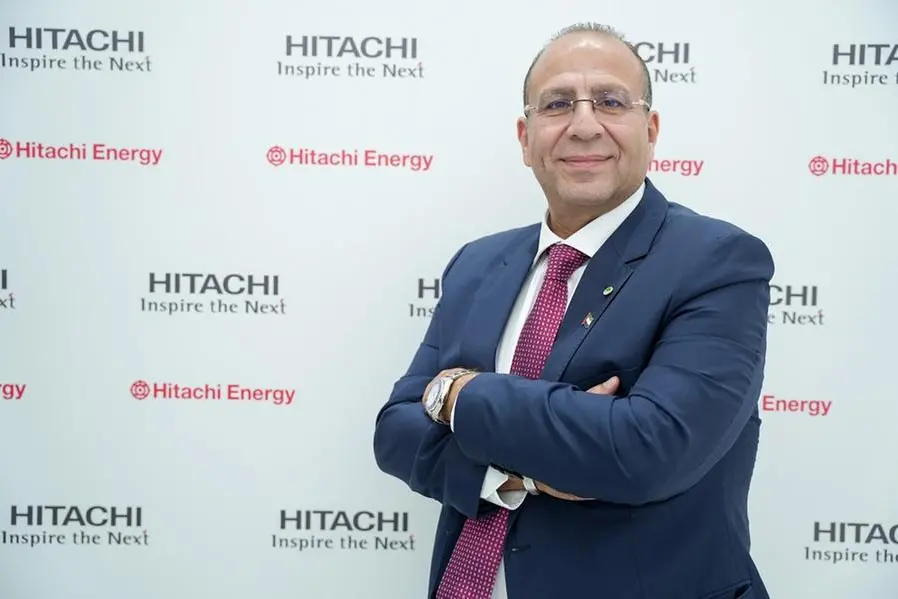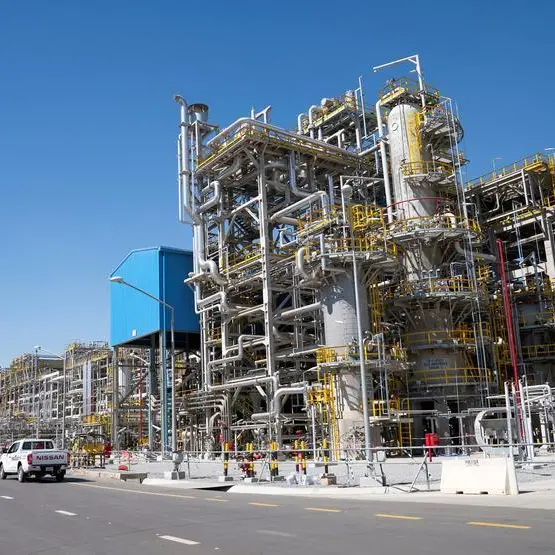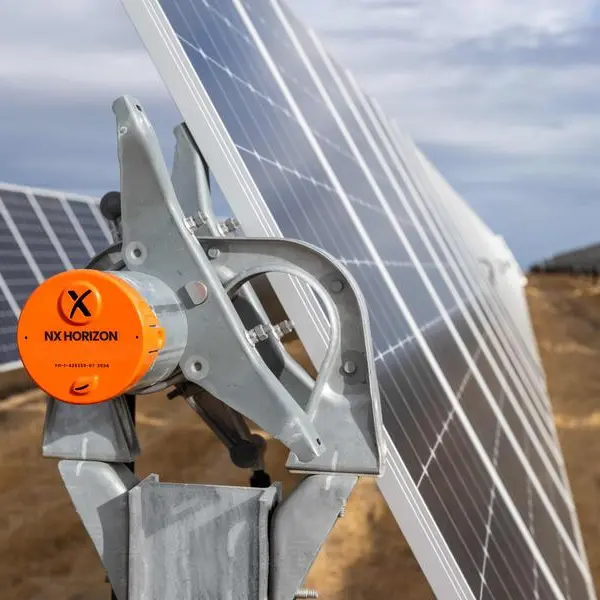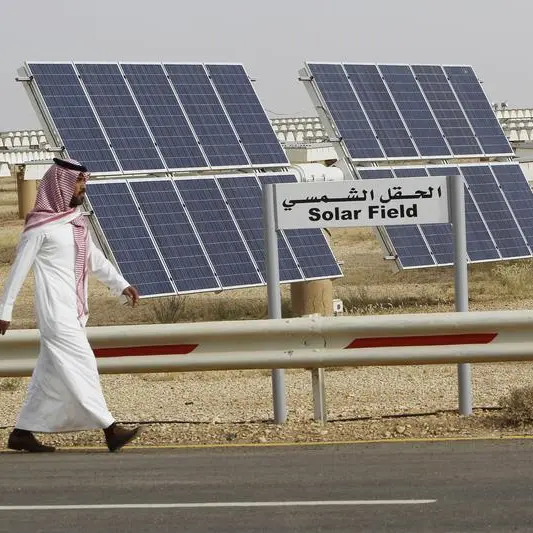PHOTO
Digitalisation, decentralisation, and energy storage solutions are revolutionizing power grids, paving the way for a more resilient and sustainable energy future, according to Dr. Mostafa AlGuezeri, Managing Director for the Gulf and Maghreb at Hitachi Energy.
The Middle East is at the forefront of this transformation, with nations like the UAE and Egypt making significant investments in renewable energy projects to meet their sustainability targets.
“These investments present significant opportunities for Hitachi Energy, particularly in renewable energy integration and grid digitalisation,” AlGuezeri told Zawya Projects..
A key project involves supporting Dubai Electricity and Water Authority (DEWA) in modernising the DFM-listed utility’s power grid to support Dubai Clean Energy Strategy 2050, and the Dubai Net Zero Emissions Strategy 2050 that targets 100 percent energy production from clean energy sources by 2050. The company is also involved in grid stability and resilience projects that utilise its high-voltage direct current (HVDC) technology and smart grid solutions.
“These advanced solutions are essential for ensuring that renewable energy sources are seamlessly integrated into the grid infrastructure, enhancing the overall sustainability of the energy system,” said AlGuezeri.
He added that the company’s digital solutions, such as asset performance management and predictive maintenance tools, play a key role in helping the region’s utilities optimise their operations and increase the lifespan of their infrastructure.
As energy grids become increasingly digitalised, cybersecurity remains a critical focus. Hitachi Energy has adopted a "security-by-design" approach, which aims to embed cybersecurity at every level of the digital energy infrastructure.
“This involves defense-in-depth strategies, which layer multiple protective mechanisms across the grid system to detect and respond to threats before they can cause disruption,” AlGuezeri explained. “By incorporating industry-leading encryption, authentication, and access control measures, Hitachi Energy ensures that its digital solutions provide both grid reliability and security.”
Beyond the utility sector, AlGuezeri anticipates significant growth from industrial decarbonisation initiatives
“As industries seek to reduce their carbon footprints and improve energy efficiency, it will create a demand for sustainable energy solutions, electrification, and energy storage technologies,” he said, adding that the company’s integrated energy solutions expertise positions it well to support industries and governments working toward their sustainability targets.
Excerpts from the interview
With several countries in the region initiating grid modernisation to keep pace with the growing diversity in their energy mix, what are some of the trends in the spotlight?
One of the significant trends is the widespread adoption of digital technologies that enable enhanced monitoring, automation, and efficient management of energy systems. These technologies allow for real-time data collection and analysis, helping to optimise energy flows and ensure seamless integration of renewable energy sources, such as solar and wind, into the grid.
Another key trend is the decentralisation of energy systems. Instead of relying solely on large, centralised power plants, many countries are developing localised energy systems, such as community-based grids and microgrids. Decentralisation offers greater flexibility and enhances energy security by allowing regions to generate and manage their energy needs. It also supports the integration of renewable energy sources closer to the point of consumption.
Additionally, energy storage solutions have become essential to the energy mix. Advanced battery systems and other storage technologies efficiently balance energy supply and demand. These solutions ensure that renewable energy is available even when production levels vary, contributing to the overall reliability and sustainability of the energy grid. These trends demonstrate the global shift towards more resilient, efficient, and sustainable energy systems aligned with climate goals.
How do these trends translate into market opportunities for Hitachi Energy?
As countries modernise their power grids to accommodate a more diverse energy mix, there is a growing demand for advanced solutions that enhance grid reliability, efficiency, and flexibility. Hitachi Energy's portfolio of digital solutions, such as the Asset Performance Management (APM) and TXpert ecosystem, is well-positioned to meet these demands.
Digitalisation opens opportunities for Hitachi Energy to innovate and deliver intelligent grid solutions that help utilities manage complex energy systems. These digital solutions enable real-time monitoring and optimisation of energy flows, improving operational efficiency and grid stability.
The growing decentralisation trend presents opportunities for Hitachi Energy to support the development of microgrids and other localised energy systems. With our expertise in renewable energy integration and grid automation, we can help utilities and industries develop resilient and flexible energy systems tailored to local needs.
Additionally, the increasing demand for energy storage solutions offers a promising market for our advanced battery technologies, which ensure a stable energy supply and support the efficient use of renewable energy.
On the flip side, what are the obstacles to countries investing in their grid to accommodate the diversification of energy mix?
While the opportunities for modernising the grid are vast, there are several obstacles that countries must navigate when investing in their energy infrastructure to support a diversified energy mix.
One of the most significant challenges is grid modernisation's high upfront capital costs. Investments in advanced technologies, such as smart grids, digital substations, and energy storage solutions, require substantial financial resources. Securing the necessary funding for these upgrades can be a major hurdle for many countries, especially those with constrained budgets.
Establishing an efficient and reliable grid infrastructure is essential to accommodate the intermittent nature of renewable energy sources. Hitachi Energy has been instrumental in advancing grid technologies, notably through HVDC systems. These systems enable efficient electricity transmission over long distances, sending huge amounts of power where needed most, including connecting offshore operations to onshore grids with minimal energy losses. Digitalisation and smart grid solutions are pivotal for optimising electricity generation and distribution.
Hitachi Energy’s dedication to energy efficiency, which encompasses waste reduction in grid operations and support for electric truck fleets, aligns with the broader objective of conserving energy resources and curbing carbon emissions across various sectors.
Could you elaborate on investment and recruitment plans for the region?
Hitachi Energy supports the region's transition to a sustainable energy future. One key area of focus is fostering local talent through strategic partnerships with educational institutions. Recently, Hitachi Energy partnered with the American University of Sharjah (AUS) to develop talent in sustainable energy and digitalisation. This collaboration is part of our long-term vision to equip the next generation of engineers with the skills to advance energy solutions innovation.
Through partnerships like this, we are building local expertise and contributing to regional innovation by integrating academic research with practical industry applications. We aim to bridge the gap between academia and industry, ensuring that emerging talent is prepared to address the challenges of tomorrow's energy systems.
By investing in knowledge transfer and skill development initiatives, Hitachi Energy empowers local capacity building.
The increasing digitalisation of energy grids exposes utilities to more sophisticated cyber threats. How is does Hitachi Energy addressing that?
One of the main challenges utilities face is protecting both IT [Information Technology] and OT [Operational Technlology] systems from malicious actors. Hitachi Energy addresses these challenges through advanced cybersecurity frameworks integrating real-time threat detection and response systems. These systems are designed to identify and mitigate potential vulnerabilities in both physical and digital infrastructures, ensuring continuous grid operations and minimising the risk of service disruptions.
(Reporting by SA Kader; Editing by Anoop Menon)
(anoop.menon@lseg.com)
Subscribe to our Projects' PULSE newsletter that brings you trustworthy news, updates and insights on project activities, developments, and partnerships across sectors in the Middle East and Africa.





















